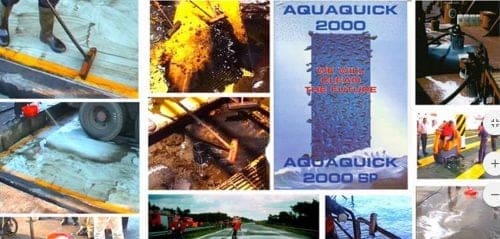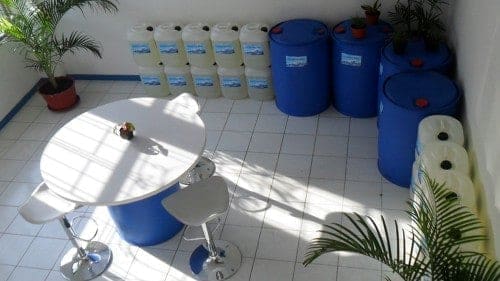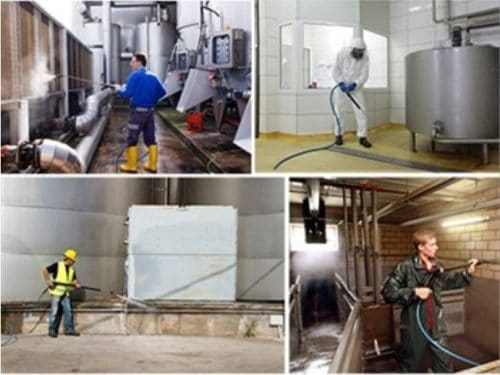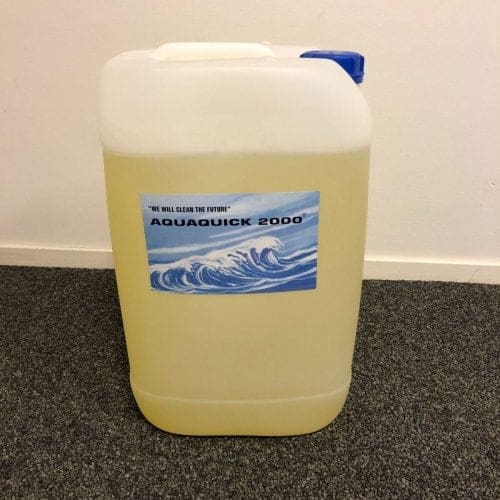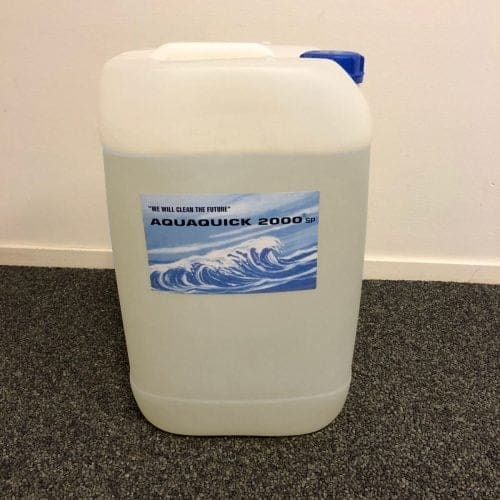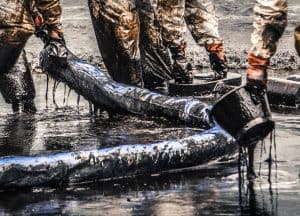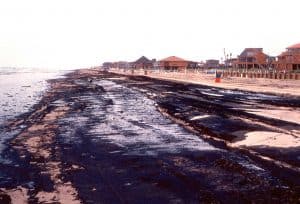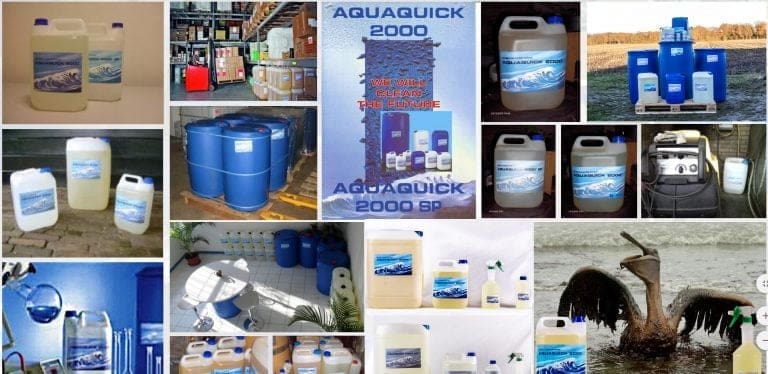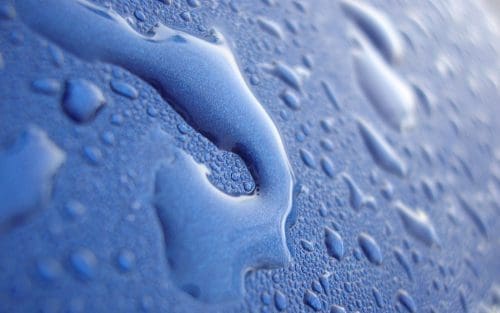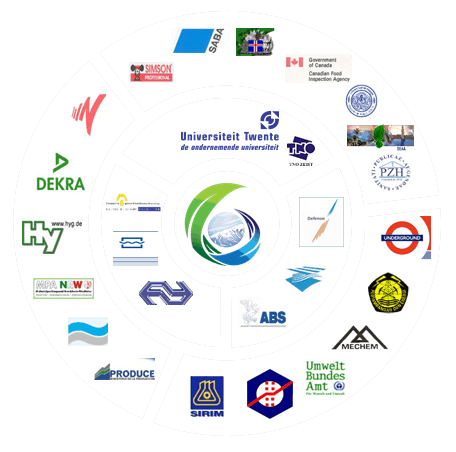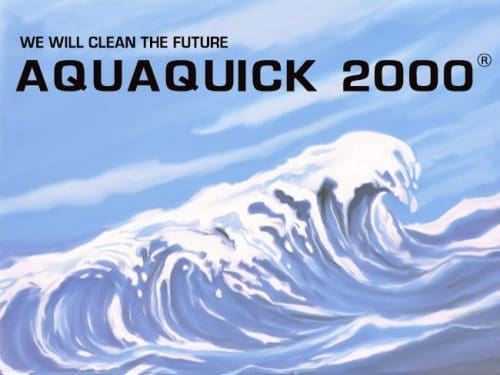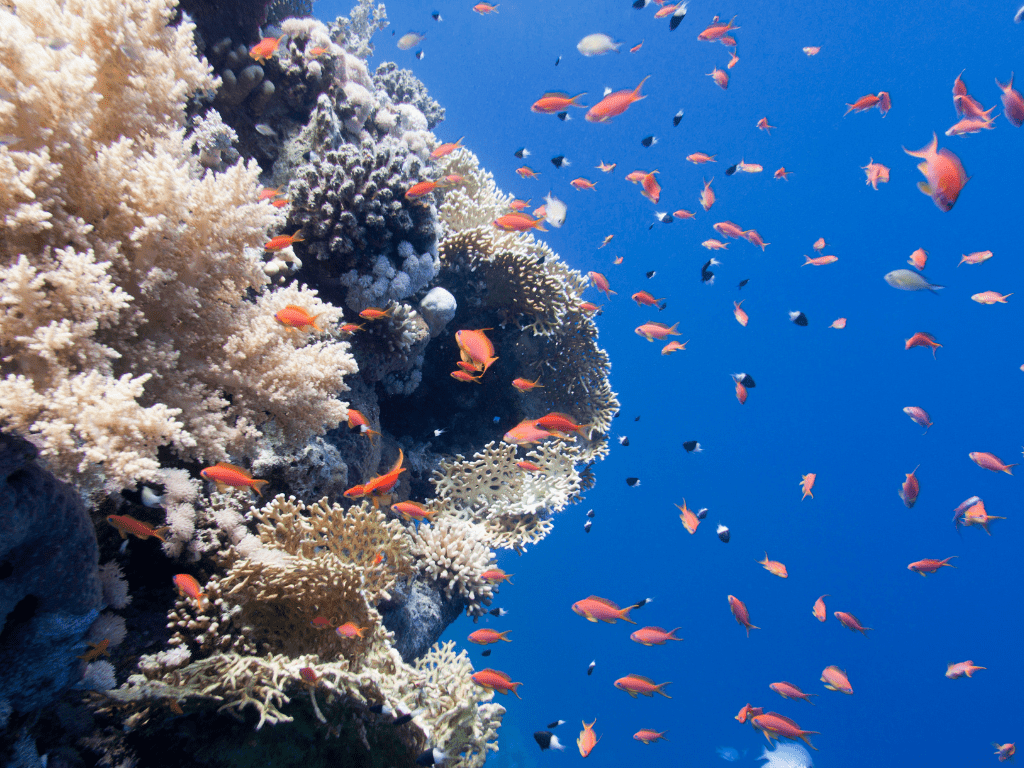海洋汚染は現代における最も重大な環境問題のひとつである。海洋汚染は海や沿岸、そしてこれらの生態系を住処とする無数の生物種に影響を及ぼす。プラスチック廃棄物から原油流出まで、海洋汚染は広範囲に影響を及ぼす。この記事では、さまざまな種類の海洋汚染、それらが海洋生態系に与える影響、そして深刻化するこの問題を軽減・管理するための取り組みについて説明する。
海洋汚染の種類
海洋汚染にはさまざまな形態があり、それぞれに課題がある。これらの汚染物質は、人間のさまざまな活動を通じて海洋に入り込み、海洋生物や生態系に長期的な影響を及ぼす。これらの汚染物質を理解することは、その影響を軽減するための第一歩である。
1. プラスチック汚染
海洋汚染で最も多く、かつ有害なもののひとつがプラスチックである。ペットボトル、バッグ、漁具などのプラスチック廃棄物は、しばしば海に流れ込み、何百年もの間、海に残留する可能性がある。海洋動物はプラスチックを餌と間違えて摂取することが多く、怪我や栄養失調、死に至ることもある。さらに、プラスチックはマイクロプラスチックに分解され、より小さな海洋生物によって消費され、最終的には食物連鎖に入る。
2. 原油流出
石油流出も海洋汚染の主な原因である。石油の輸送や掘削中の事故によって引き起こされるこれらの流出は、海洋生態系に壊滅的な打撃を与える。石油は水面を覆い、その下にいる海洋生物に酸素が行き渡るのを妨げる。また、マングローブ、サンゴ礁、海草藻場など、繊細な沿岸生態系にダメージを与えることもある。浄化作業には多大な費用と困難が伴い、油流出の影響は何年も続く可能性がある。
3. 化学汚染
農薬、重金属、産業廃棄物などの化学物質も海洋汚染に大きく寄与している。これらの化学物質は、陸地からの流出物や産業排水、あるいは偶発的な流出事故によって海洋に流入する可能性がある。いったん海洋に流入したこれらの汚染物質は、海洋生物を汚染し、生態系を乱し、食物連鎖に入り込むことで人間の健康に害を及ぼす。
4. 栄養汚染
主に農業からの流出水によって引き起こされる栄養塩汚染も、海洋汚染の一形態である。肥料に含まれる窒素やリンのような過剰な栄養素が海洋に流入し、有害な藻類を発生させる。これらの藻類は水中の酸素濃度を低下させ、ほとんどの海洋生物が生存できない「デッドゾーン」を作り出す。海洋生物に害を与えるだけでなく、栄養塩汚染は健全な海に依存する漁業やその他の産業にも影響を及ぼす可能性がある。
海洋汚染が海洋生態系に与える影響
海洋汚染は海洋生態系にさまざまな影響を与えている。これらの影響は、個々の生物種から生態系全体まで、さまざまなレベルで生じている。
1. 海洋生物多様性への脅威
海洋汚染は、海洋の生物多様性に対する重大な脅威である。プラスチックや化学物質などの汚染物質は、海洋生物に直接的な害を及ぼす可能性がある。例えば、ウミガメや海鳥、海棲哺乳類などの動物がプラスチックを摂取したり、破片に絡まったりすることで、傷害や死に至る可能性がある。さらに、化学物質による毒素が海洋生物の体内に蓄積し、生殖の問題や病気、死につながることもある。
2. 生息地の破壊
海洋汚染はまた、海洋生物にとって不可欠な生息地を破壊する可能性もある。海洋生物多様性の維持に不可欠なサンゴ礁は、汚染に対して非常に敏感である。例えば、原油流出はサンゴを窒息させ、サンゴが成長するのに必要な日光を妨げます。同様に、プラスチックの破片や化学物質は、多くの生物に重要な生息地と餌を提供している藻場やマングローブを傷つける可能性がある。
3. フードチェーンの崩壊
汚染は、最小のプランクトンから最大の捕食者まで、海洋の食物連鎖を乱す可能性がある。小さな海洋生物が摂取したマイクロプラスチックは食物連鎖を上昇し、より大きな生物種に影響を与える可能性がある。これらの汚染物質が海洋動物の体内に蓄積されると、これらの動物を食べた人間の健康にも影響を及ぼす可能性がある。食物連鎖に入り込んだ毒素の長期的な影響についてはまだ完全には解明されていないが、世界の健康に対する懸念は高まっている。
海洋汚染対策への取り組み
海洋汚染を減らすための取り組みは、数十年にわたって続けられている。政府、非政府組織(NGO)、科学者、そして一般市民はみな、海洋汚染の影響を軽減するために協力している。以下は、採用されている最も顕著な戦略の一部である。
1. 政策と立法
世界中の政府は、海洋汚染を抑制するためにさまざまな政策や規制を実施している。MARPOL条約のような国際協定は船舶による汚染を防止することを目的としており、各国政府はプラスチック廃棄物の削減、有害化学物質の使用禁止、産業廃棄物の海洋排出規制などの法律を制定している。これらの法律の施行は、海洋汚染を発生源から最小化する上で重要な役割を担っている。
2. 技術革新
技術の進歩も汚染管理の効率化に役立っている。例えば、アクアクイック2000のような油流出対応製品の使用は、流出した油をより効果的に浄化するのに役立つ。AQUAQUICK 2000は油を分解し、海からの除去を容易にする。さらに、生分解性プラスチック、より優れた廃棄物管理システム、海から化学汚染物質を浄化する新たな方法の開発にも技術が利用されている。
3. 意識向上と教育
海洋汚染を減らすためには、市民の意識向上キャンペーンが重要な役割を果たす。プラスチック汚染や乱獲の危険性、海洋保全の重要性について一般の人々を教育することで、個人は環境への影響を減らすための措置を講じることができる。プラスチックの使用量を減らす、海岸清掃に参加する、持続可能な魚介類を選ぶなど、簡単な行動で大きな変化をもたらすことができる。
4. 海洋保護区(MPAs)
海洋保護区(MPAs)とは、海洋生態系と生物多様性を保護するために人間の活動が規制される海域のことである。MPAを設置することで、政府は海洋生物が汚染の害を受けずに繁栄できる安全な隠れ家を作ることができる。MPAは、サンゴ礁、海草草原、マングローブ林などの重要な生息地を保護するのに役立ち、これらは海洋全体の健全性にとって不可欠である。
汚染軽減におけるAQUAQUICK 2000の役割
AQUAQUICK 2000は、海洋汚染、特に油流出の影響を軽減する貴重なツールであることが証明されている。業務用流出油浄化剤であるAQUAQUICK 2000は、油粒子を効果的に分解し、水面からの油の除去を容易にする。AQUAQUICK 2000は、迅速かつ効率的な清掃作業を促進することにより、油流出による長期的な環境破壊を軽減し、影響を受けた生態系に回復のチャンスを与える。
海洋汚染が人間の健康に与える影響
海洋汚染は、海洋生態系のみならず人間の健康にも深刻な影響を及ぼす世界的な問題である。プラスチック、化学物質、石油、重金属など、海洋に流入する汚染物質は海洋生物に連鎖的な影響を及ぼし、ひいては人間にもさまざまな影響を及ぼす。魚介類の汚染から病気の蔓延まで、海洋汚染の影響は広範囲に及ぶ。この記事では、海洋汚染が人間の健康にどのような影響を及ぼすのか、そしてその影響を軽減するために私たちはどのような対策を講じることができるのかを探っていく。
海洋汚染に伴う健康リスク
海洋汚染がもたらす健康リスクは多岐にわたり、急性中毒から長期的な慢性疾患まで様々である。以下に、海洋汚染が人間の健康に与える影響をいくつか挙げる。
1. 水産物の汚染
海洋汚染が人間の健康に与える最も直接的な影響のひとつは、魚介類の汚染である。魚介類などの海洋動物は、プラスチック、重金属、有害化学物質などの汚染物質を摂取する。人間がこれらの汚染された水産物を摂取すると、動物が蓄積した有害物質にさらされる危険性がある。水銀などの有害化学物質に長期間さらされると、神経障害、腎臓障害、その他の深刻な健康状態につながる可能性がある。
2. 毒素と発がん性物質への暴露
海洋の化学汚染物質は、有害な毒素や発がん性物質を環境中に放出する可能性もある。これらの物質は海洋生物に蓄積され、食物連鎖を通じて人間の食生活に行き着く。これらの発がん性物質に長期間さらされると、がん、特に肝臓、腎臓、生殖器官のがんの発症リスクが高まる。特に油流出は、魚介類や沿岸地域を汚染する有毒炭化水素の主な発生源であり、人間の健康に害を及ぼす可能性がある。
3. 水系感染症
海洋汚染は水系伝染病の蔓延にもつながる。石油流出、農業排水、下水などから汚染された水が病原体を海洋に持ち込む可能性があり、直接接触したり、汚染された魚介類を摂取したりすることで人に感染する可能性がある。コレラ、腸チフス、肝炎などの病気は、汚染された魚介類を摂取したり、汚染された水域に接触した人が感染する可能性がある。
4. 呼吸器の健康への影響
油流出や有害藻類による粒子状物質のような空気中の汚染物質は、呼吸器の健康に悪影響を及ぼす可能性がある。これらの原因から汚染された空気を吸い込むと、喘息、気管支炎、その他の肺疾患を含む呼吸器系の問題を引き起こす可能性がある。観光や漁業に依存する沿岸地域社会は、海洋汚染がもたらす健康リスクに対して特に脆弱である。
海洋汚染が公衆衛生に与える経済的影響
直接的な健康リスクだけでなく、海洋汚染は公衆衛生システムにも大きな経済的負担を強いている。汚染された魚介類、水系感染症、呼吸器疾患による病気の治療には、かなりの医療資源が必要である。多くの沿岸地域で重要な産業である漁業や観光業からの収入の損失は、海洋汚染が地域社会に与える経済的負担をさらに大きくしている。
さらに、海洋に流出した油やプラスチック、その他の汚染物質の浄化にかかる費用は天文学的な数字にのぼる。こうした浄化作業による財政的負担は、海洋汚染による被害を軽減するために税金を投入しなければならない政府にのしかかることが多い。
海洋汚染が人間の健康に与える影響を軽減するための解決策
海洋汚染の影響は深刻だが、人間の健康や環境への影響を軽減するための解決策や戦略はいくつかある。
1. より強力な規制と立法
海洋汚染を減らす最も効果的な方法のひとつは、海洋に流入する廃棄物や汚染物質の量を減らすことを目的とした規制や法律の強化である。世界中の政府は、使い捨てプラスチックの使用禁止、産業排水の規制、不法投棄に対する罰則の強化などを実施しなければならない。さらに、MARPOL条約などの国際協定は、油流出などの海洋汚染の発生を減らすのに役立つ。
2. 汚染管理における技術革新
技術の進歩により、海洋汚染をより適切に管理・軽減することが可能になった。例えば、AQUAQUICK 2000のような製品は、海洋環境で流出した油の浄化に役立つ。AQUAQUICK 2000は油の粒子を分解し、水面からの除去を容易にする。このような技術を使用することで、海洋生態系や人間の健康に対する油流出やその他の汚染物質の影響を軽減することができる。
3. 意識向上と教育
海洋汚染の危険性について一般市民の意識を高めることは、より持続可能な行動を促すために不可欠である。プラスチックの使用量を減らし、廃棄物を適切に処理し、環境に優しい企業を支援することを一般市民に教育することで、海洋に流入する汚染の量を大幅に減らすことができる。情報を得た市民は、海洋とその生態系を保護する政策を支持する可能性が高くなり、環境と人間の健康の両方にとって長期的な利益につながる。
4. 持続可能な水産物消費の促進
持続可能な水産物の消費は、海洋生態系への負担を軽減し、水産物が安全で健康的な食料源であり続けることを保証するのに役立つ。持続可能な水産物を選ぶことで、消費者は乱獲や海洋汚染物質の蓄積に対する需要を減らすことができる。環境への影響を最小限に抑える養殖方法を支援することも、海洋資源の保護に貢献する方法のひとつである。
結論
海洋汚染は海洋生態系の健全性を脅かす深刻な問題であり、その影響は世界中に及んでいる。プラスチック廃棄物から原油流出まで、海洋汚染は生物多様性、生息地、食物連鎖に影響を及ぼしている。しかし、集団的な努力、革新的な技術、より強力な政策によって、海洋汚染の影響を緩和し、海の未来を守ることは可能である。以下のような製品を使用することで、海洋汚染を軽減することができる。 AQUAQUICK 2000 プラスチック廃棄物や化学汚染を削減するための世界的な取り組みとともに、原油流出事故の浄化活動において、よりクリーンで健全な海洋生態系への希望をもたらしている。

